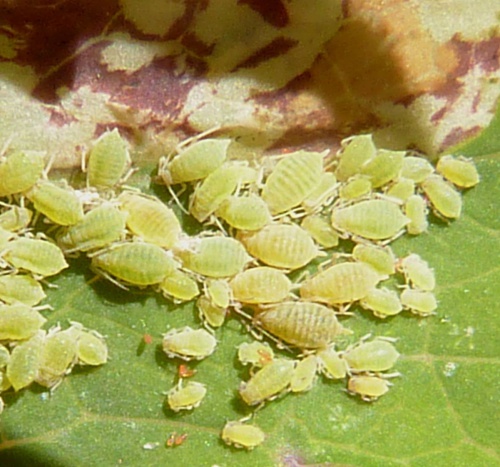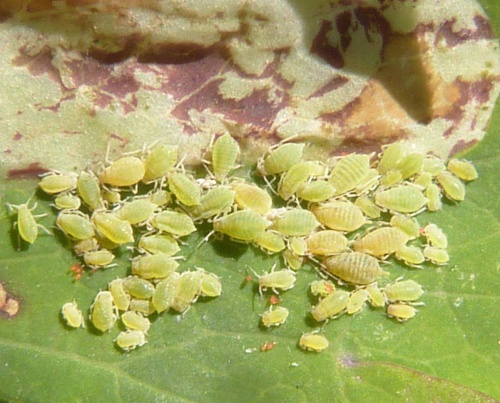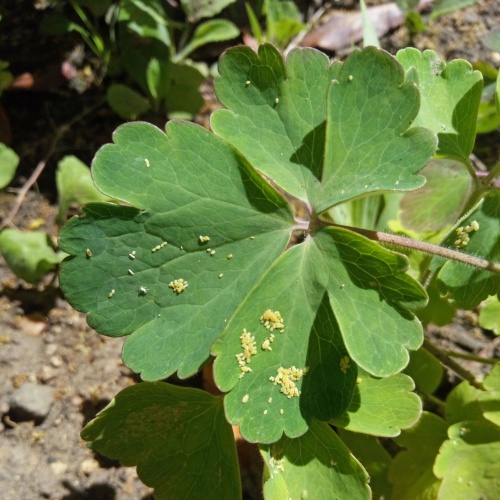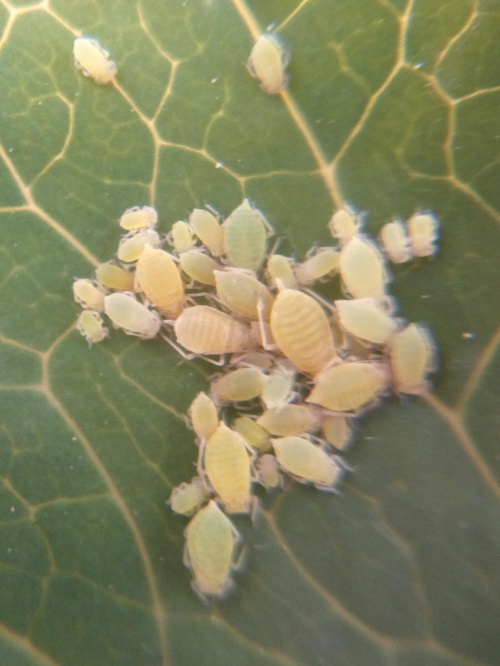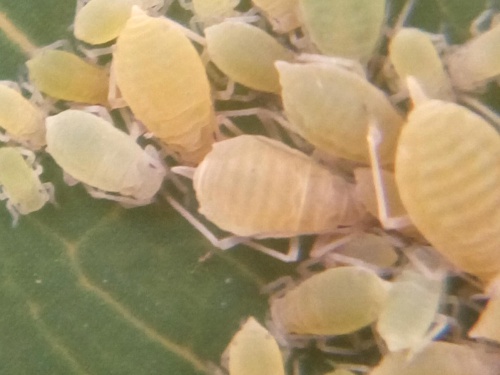Longicaudus trirhodus
Apterae of Longicaudus trirhodus on their primary host (Rose) are pale yellowish-green and lightly wax-dusted, with slightly darker green transverse bands across the abdomen. Apterae on the secondary hosts (Columbine) are more yellow-green. The third antennal segment is distinctly longer than the total length of the fourth and fifth antennal segments. The siphunculi are cone-shaped with dark tips and much shorter than the cauda. The cauda is long and finger-like much longer than its basal width. The body length of L. trirhodus apterae on rose is 2.0 to 2.7 mm - those on secondary hosts are often smaller, down to 1.3 mm.
Close up photographs required, please state the host plant.
Can be found on either one of the host species – Rose or Columbine.
Overwintering eggs of Longicaudus trirhodus on roses hatch in March, producing fundatrices. In April these yield small colonies on young leaves and buds. In May or June these colonies produce emigrant alatae which fly to the secondary hosts where their offspring feed on stems and leaf undersides. Autumn migrants fly to roses in October.
The rose - columbine aphid host alternates from rose (Rosa spp.) in winter and spring, to cultivated columbine (Aquilegia vulgaris) and meadow rue (Thalictrum) in the summer.
True status in Britain is difficult to determine due to lack of records.
Rarely recorded in Leicestershire and Rutland.
Leicestershire & Rutland Map
Enter a town or village to see local records
MAP KEY:
Yellow squares = NBN records (all known data)
Coloured circles = NatureSpot records: 2025+ | 2020-2024 | pre-2020
UK Map
Species profile
- Species group:
- Bugs
- Kingdom:
- Animalia
- Order:
- Hemiptera
- Family:
- Aphididae
- Records on NatureSpot:
- 3
- First record:
- 06/07/2022 (Calow, Graham)
- Last record:
- 09/06/2025 (Pugh, Dylan)
Total records by month
% of records within its species group
10km squares with records
The latest images and records displayed below include those awaiting verification checks so we cannot guarantee that every identification is correct. Once accepted, the record displays a green tick.
In the Latest Records section, click on the header to sort A-Z, and again to sort Z-A. Use the header boxes to filter the list.


